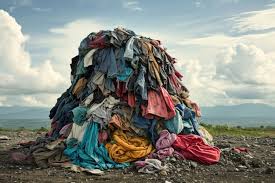
When you buy cheaply priced clothing, you're often supporting a cycle that's harmful to both the environment and people. Fast fashion brands churn out low-quality garments at a rapid pace, leading to massive waste. These clothes are typically made from synthetic materials like polyester, which are derived from fossil fuels and take hundreds of years to break down, polluting our planet in the process.
There's a human cost too. To keep prices low, many of these brands rely on sweatshops, where workers, often in developing countries, are paid meager wages and endure poor working conditions, if they’re paid at all. This exploitation is a hidden cost of that bargain-priced shirt.
Sure, that cheap clothing may seem like a great deal, but it's the environment and vulnerable workers who end up paying the real price. Opting for better-quality, ethically-made clothing not only reduces waste but also supports fair labor practices—making your wardrobe a force for good. If you're on a budget, there are plenty of websites that offer gently worn goods, or you can always try thrifting.
Why am I even telling you this? Because the true cost of fast fashion isn't just a matter of dollars and cents; it's about the kind of world we want to live in. The environmental damage caused by mass-produced, low-cost clothing contributes to climate change, water pollution, and the loss of biodiversity. Every cheaply made garment is a step backward in the fight to protect our planet for future generations.
On the human side, the workers who make these clothes are often trapped in cycles of poverty, with little hope of escape. Their suffering isn't some abstract concept—it's a daily reality of long hours, unsafe working conditions, and inadequate pay. By supporting fast fashion, we're saying that this is acceptable, which is far from cool—it's downright fucked up.
Making people aware of these issues is crucial because change starts with knowledge. When consumers understand the impact of their choices, they can make better decisions. By choosing to invest in higher-quality, ethically-made clothing, you're not just buying a product—you're supporting a system that values the planet and the people who live on it. And that's something worth paying for.
If you have the time, please contact your congressperson and urge them to raise tariffs on fast fashion brands. Also, make it known that you want transparency in how garments are made. This means from dirt to shirt. The more informed you are, the easier it will be to make an educated decision.



